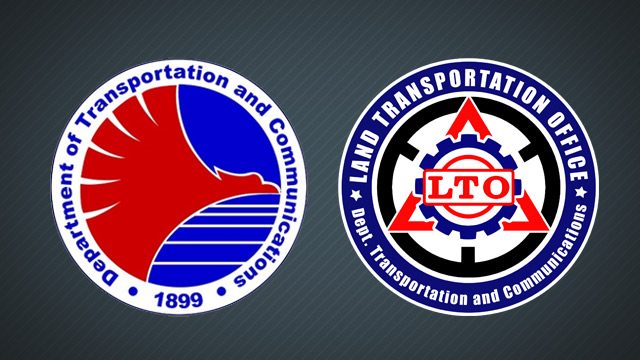SUMMARY
This is AI generated summarization, which may have errors. For context, always refer to the full article.

MANILA, Philippines – Car owners urged the Land Transportation Office (LTO) to fix its system and monitor car dealers to speed up the release of new license plates.
The appeal comes a week after the LTO’s “No Registration, No Travel” policy came into effect.
Under the policy, motorists using vehicles without license plates face fines, unless they can present documents showing that the vehicle has been registered.
The rule came under fire from motorists, as well as the Metropolitan Manila Development Authority (MMDA) which refused to enforce the policy because it was “unfair” to drivers whose dealers had not turned over the new license plates that LTO had issued through them.
Anne Espiritu, a business development manager, told Rappler she bought a new car in October last year, but has yet to receive her license plate.
Her dealer had told her that the relocation of an LTO branch from mid-December to mid-February contributed to the delay.
The original receipt (OR) and certificate of registration (CR) that she received last November are her only proof that the car was registered.
It’s a similar story for public relations practitioner Tsaris Salgado who bought a new car in September 2014. But unlike Espiritu, Salgado finally got the new license plate after months of waiting.
The plate, however, was not released by the dealer. Salgado’s husband found it at the cashier of an LTO branch after hours of making inquiries.
Salgado said her husband also saw what appeared to be other unclaimed license plates at the LTO cashier.
LTO system
Responding to criticism about the policy, the LTO said it had already released license plates to car dealers, and advised motorists to ask their dealers about it.
The agency also released a list showing transactions from January to March 27, which indicated the license plates’ series numbers and the date of release to car dealers.
The LTO said it had made the list public “to help new vehicle owners identify where their plates may be.”
In Salgado’s case, her plate was found at an LTO branch and was, for some reason, not turned over to the car dealer.
She told Rappler that after weeks of unsuccessful follow-ups with their car dealer, her husband decided to go directly to the LTO to inquire about it.
After getting help to search LTO’s records, Salgado’s husband found that their plate was already available, but no OR and CR were found.
It turned out that these documents had not yet been released to the records section, but remained with the cashier, where the license plate was also found.
Salgado said that this was proof that the LTO badly needed to fix its system before implementing the new policy.
“The new policy is good to implement if the system is in place…but it’s not the right time. They should focus on fixing the system within LTO and with the dealers,” she said.
Dealer’s fault?
The car dealers should also be held accountable, Salgado said.
Aside from the poor customer service she encountered at the car dealer, Salgado said it turned out that their car was registered months after it was bought.
The dealer had warned her that the registration process takes a long time, but told her that the car was registered in October 2014, a month after she bought it.
After repeated follow-ups, the car dealer told Salgado that her car had somehow been excluded from the first batch of applications because of some “problem with the liaison officer at the LTO.”
Salgado asked for a receiving copy to prove that her vehicle was included in the October batch of applications but to no avail.
“They couldn’t show me that,” she said.
She was shown a second document, where her car is listed as registered – but it was dated February 2015.
“So ibig sabihin, noong February pa lang nila ni-register (So this means they only registered my car last February),” Salgado said.
30-day moratorium
In a statement, Senator Majority Leader Alan Peter Cayetano called for a 30-moratorium on the implementation of the “No Plate, No Travel” policy.
“People should not bear the burden of government inefficiency,” Cayetano said in a statement on Wednesday.
He said the 30-day moratorium would to give the private contractor “enough time to produce the new plates, the LTO to overcome the backlog, and car dealers to immediately claim the car plates of the buyers.”
The senator also said he will file a bill that seeks “to hold government officials and private contractors liable and accountable” in case of service delays in government agencies that inconvenience the public.
“Let’s make sure government officials and private contractors are doing their job. And when they don’t, they should be the ones penalized and not the public,” Cayetano said.
Ask the dealers
In an interview on GMA-7 on Monday, LTO chief Alfonso Tan Jr defended his agency, saying that it is able to issue new license plates within 7 days.
He also advised car owners to ask their dealers if they have all the required documents needed to register the vehicles.
Tan said: “Kapag ikaw ay pumunta sa dealership at bumili ng sasakyan, at mag-o-offer sila na sila ang mag-asikaso ng rehistro para sa’yo, dapat itanong mo sa dealer, ‘Ready na ba ipa-rehistro?’ (When you go to a dealership and buy a car, and they offer to register the vehicle for you, you should ask the dealer if the car is ready to be registered).”
In an earlier statement, the LTO chief said the agency had received reports that some dealers took months before starting the application process.– Rappler.com
Add a comment
How does this make you feel?
There are no comments yet. Add your comment to start the conversation.